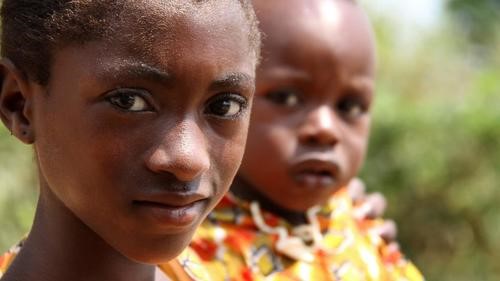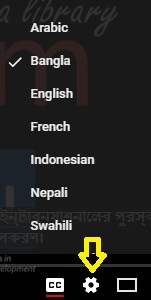PRESS RELEASE
April 26, 2023
SIL LEAD is thrilled to announce its support of the Reading for East Africa’s Development (READ) program in partnership with RTI International, which has been awarded as a holder of the Indefinite Delivery Indefinite Quantity (IDIQ) contract by the United States Agency for International Development (USAID). Please read RTI’s press release here.
The READ program aims to improve access to quality education for children in eight East African countries, including Kenya, Tanzania, and Uganda, by reducing barriers to education, improving classroom equity, and increasing learning opportunities.
“SIL LEAD is honored to have been selected by RTI as a partner on its bid,” said Christof Weber, SIL LEAD’s executive director. “We hope to provide technical expertise and support wherever we are most needed, particularly in the areas of early grade reading and writing instruction, curriculum development, teacher training, and, if needed, language mapping and analysis.”
Through sociolinguistic research, SIL LEAD works with local experts to help determine the languages used by children, schools, and communities to inform programmatic decisions. SIL LEAD is uniquely qualified to address issues of African language linguistics, orthography, and reading, and can provide language and reading scope and sequence support. SIL LEAD also supports the development of local language supplementary reading materials using Bloom, a tool that simplifies the process of developing new books, including non-fiction and informational texts, and promotes disabilities inclusion with features like Sign Language and talking books.
SIL LEAD's expertise in teaching and learning materials development helps to ensure that pedagogical approaches and content are appropriate for the targeted population of learners. SIL LEAD can also support teacher training and community engagement using a community-based literature development approach, to better understand vital social issues and develop materials that align with them.
Programs under USAID’s READ IDIQ will seek to improve foundational skills in reading. SIL LEAD recognizes the critical importance of such skills for continued retention in school and success in future grades and beyond. SIL LEAD is, therefore, very excited to partner with RTI International and USAID to improve access to quality basic education and student learning outcomes in East Africa.
About USAID: USAID leads international development and humanitarian efforts to save lives, reduce poverty, strengthen democratic governance, and help people progress beyond assistance. Working in over 100 countries, USAID’s work advances U.S. national security and economic prosperity, demonstrates American generosity, and promotes a path to recipient self-reliance and resilience. Learn more at www.usaid.gov
About RTI: RTI International is both a global research institute and a leading international development organization. We combine these powerful capabilities with those of our partners to co-create smart, shared solutions for a more prosperous, equitable, and resilient world. Learn more at www.rti.org/idg_education
About SIL LEAD: SIL LEAD, a subsidiary of SIL International, seeks to see people flourish in community using the languages they value most. We advocate, build capacity, and work with local communities to apply language expertise that advances education and meaningful development. Learn more at www.sil-lead.org and www.sil.org.














